I REALLY Did Not Care for Wonka
It's pleasant and inoffensive and whatnot but FUCK that useless movie
Roald Dahl was a genius who was also, regrettably, a fervent Jew hater. The legendary author hated a lot of people. It doesn’t seem like too much of a stretch to say that he hated humanity as well as life itself. But he seemed to have a special dislike of Jews.
Dahl’s anti-Semitism is unsurprisingly not represented in Wonka, the sugary new confection about Dahl’s most famous creation. That’s just one of an infinite number of ways in which Wonka deviates wildly from the cozily misanthropic world Dahl created through his books.
Dahl was a miserable bastard. That’s what made him funny and relevant but Wonka overflows with love for everybody. It’s sentimental and mawkish and so sugary that its makes its director’s Paddington films seem as gritty and transgressive as Requiem for a Dream by comparison.
I try not to hate humanity and the world. It’s a struggle sometimes because humanity and the world can both suck.
That’s why you definitely do NOT need movies like Wonka, which is essentially hardcore whimsy porn that gets off on fussy production design and elaborate costumes and wordplay. You know, that sick Wes Anderson type shit.
Wonka turned me into a grump, a grinch and a Scrooge. Bah humbug! And FUCCCCCKKKKKKKKK this movie.
This exquisitely unnecessary exercise in brand extension offers a shapeless, beige, hopelessly vanilla take on Willy Wonka’s life as a young and hungry chocolatier who is a true magician of the taste buds and a magician in every other way as well.
Timothee Chalamet tests the public’s bottomless love for him, their Internet boyfriend, and that adorable punim of his, with his portrayal of Willy Wonka as everything that is good and pure and kind and lovely in the world in one beautiful package.
Willy Wonka comes to a big European city to make his fortune and spread joy and wonder and other sentimental horseshit through his fantastic confections. Alas, the charming young upstart is too kind and too generous for his own good, which was certainly not a problem for Dahl.
For reasons I can’t quite figure out, Wonka quickly pivots to a white slavery-based plot once our hero is unable to meet the Draconian terms of a contract he signs with duplicitous boarding house proprietor Mrs. Scrubit (Olivia Colman).
To pay off his debt Willy Wonka works at a launderette with other suffering souls who made the mistake of signing a contract that pretty much relegates them to a life of miserable servitude.
Like a certain carpenter in Israel, Willy Wonka has some pretty crazy ideas about love and sharing that upset the Powers That Be, who crack down on him and his attempts to spread the Holy Gospel of Chocolate through his fantastical wares.
Willie Wonka makes chocolates that make people fly. This attracts the attention of a malevolent chocolate cartel that will stop at nothing to crush the competition before he can even get started.
Half of this great glob of saccharine is devoted to Willy Wonka’s attempts to extricate himself and his compatriots from a life of slavery. The other, even more exciting part involves candy-creating oligarchs who wish to impose an unlawful monopoly in order to discourage competition.
If there’s one thing that children find more captivating than modern-day slavery it’s monopolies and monopoly-busting. Oh sure, there’s also magical chocolates and forgettable songs and dancing and fantastic creatures but the tedious heart of Wonka involves white slavery and monopolies.
If you want to know what it looks and sounds like when a performer is dead inside and very visibly regrets everything that led to them appearing in a movie look no further than Hugh Grant’s performance as a sassy Oompah Loompah named Lofty who gives Willy Wonka the business something awful but proves to have a heart of gold.
Hugh Grant hates acting. He finds it unfortunate that he gets paid millions of dollars to pretend to be different people. I can only imagine what a miserable experience making Wonka must have been for Grant.
Joyless does not begin to do justice to the misery Grant exudes from every pore. I suspect that Roald Dahl would have been very angry that they went and made his story less racist rather than more racist by making the Oompah Loompah a very British white man with green hair and orange skin instead of black African pygmies, like in Dahl’s original novel.
Watching Grant suffer his way through perhaps the most embarrassing and de-humanizing role of his entire career inspires pity rather than amusement. I don’t know what they paid Grant but it clearly was not enough for the insult to his battered dignity that his performance represents.
I was neutral to annoyed by Wonka’s first half but it lost me hardcore in a shapeless, endless and pointless second half that just goes on and on and on.
Wonka never comes close to justifying its existence. It’s not a prequel so much as it is a lazy footnote.
Meme culture transformed Willy Wonka into an enduring icon of snark and irony, a superior, condescending smartass forever destroying the delusions of some millennial punk with a brutal dose of truth delivered via sarcasm.
Gene Wilder brought a malevolence to the role utterly lacking from Chalamet’s portrayal of the character as a cross between Jesus, George Melies and Mr. Rogers.
Wonka is so intent on not offending anybody that it is offensively bland, a movie that lazily piggy-backs on the public’s love of Willy Wonka without adding anything of value to his lore.
Let’s just say that that it’s fortunate for the filmmakers that Tim Burton chose to adapt this material late in his career, long after the inspiration had run out, because otherwise this would definitely qualify as the single most pointless and arbitrary take on the character in film history.
One and a half stars out of Five

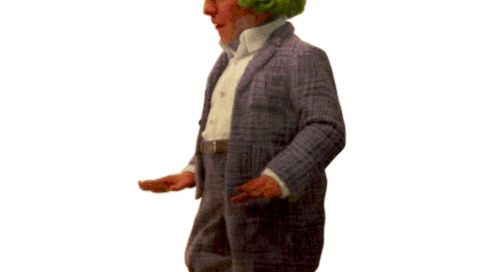



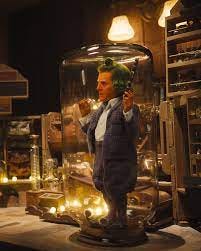
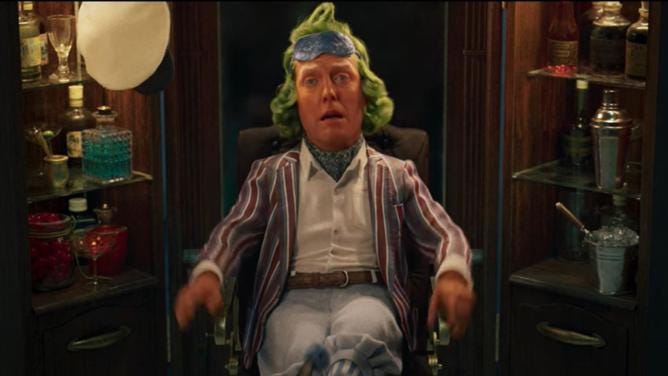
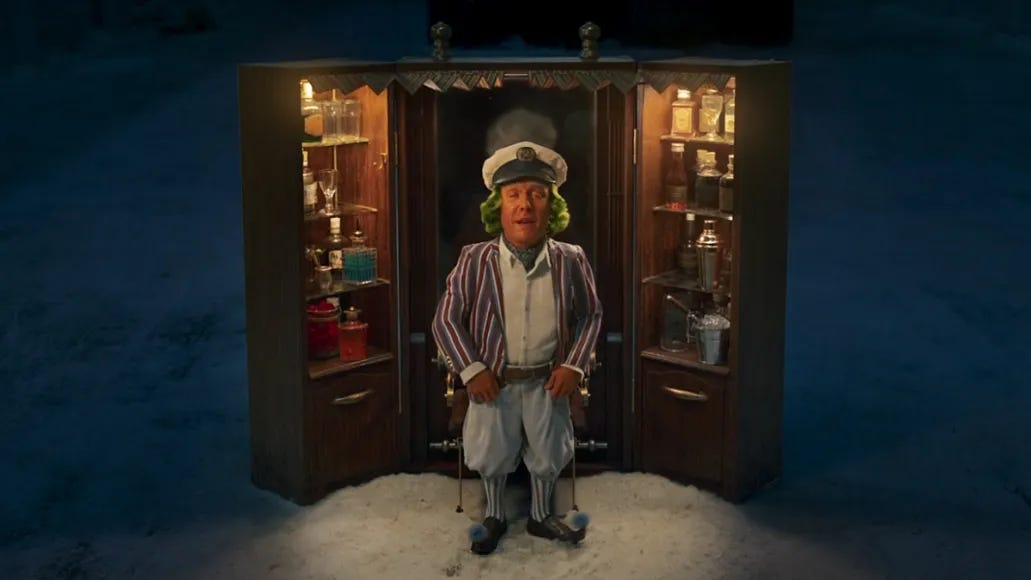
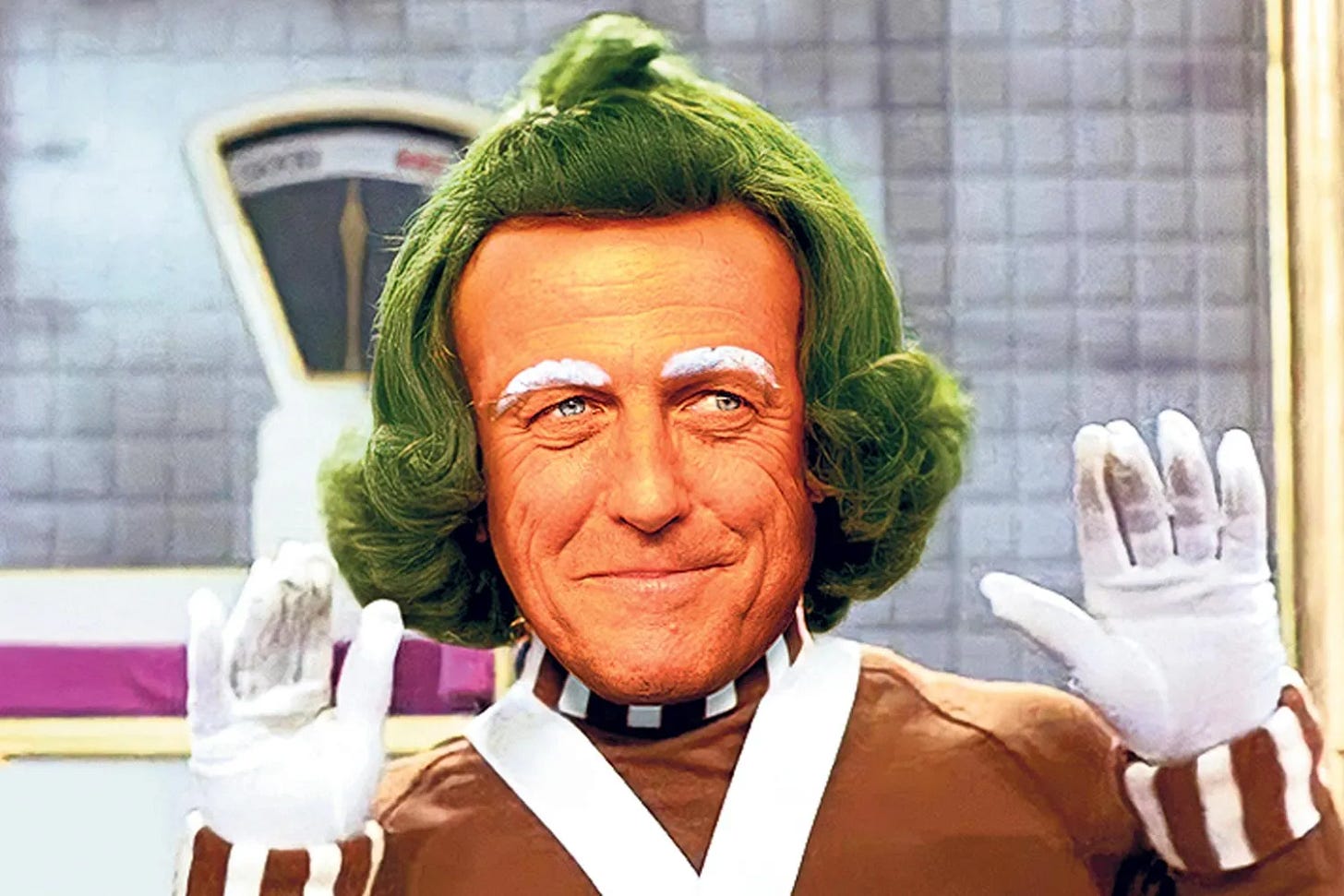
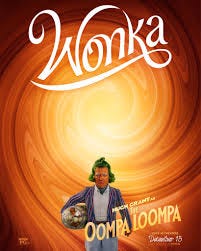

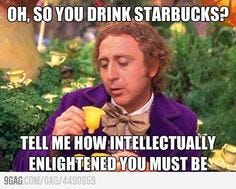

What is it about filmmakers wanting to depict slavery in their precious kids movies? Chitty Chitty Bang Bang and that 2010 Nutcracker abomination come to mind. Or the inexplicably beloved Toy Story 3. You know, the one where our lovable heroes spend 90% of the movie in a toy Stalag, and they get a side of Holocaust metaphor as a bonus? Yeah, f**k each and every one of those movies. And this one too (I'm taking Nathan's word for it).
(Ironically I was OK with Burton's version because if nothing else it came closest to the original material of any Dahl adaptation.)
Oh, and from everything I read, Hugh Grant did indeed hate making this movie. It's such a far cry from the Paddington 2 experience, which he cited as one of his favorite roles and most enjoyable movies to make.
How do you go out of your way to make a movie as inoffensive as possible, then still fail to cast a little person in maybe the most famous character use of little person actors outside of Wizard of Oz or Willow? Oompa Loompa is surely second only to Munchkin in cultural ubiquity. But they still shrank Hugh Grant.